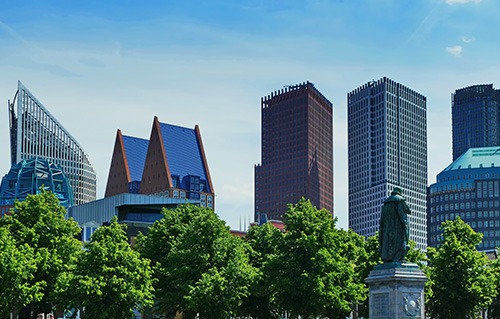Housing from high quality which is also innovative and looking beautiful. Housing in which architectural, urban and energy ambitions are fused into real estate pearls. That is the vision of the Central Government Real Estate Agency and ET Management and Advice has been given the honorable task of checking the buildings, with which the organization intends or is already meeting todays requirements, for both high safety and quality standards. A challenge that fits us seamlessly, because this, to achieve a top level, is what ET Management and Advice propagates from day one.
At the same time we keep that typical down to earth (North) Dutch attitude: the ‘Wolf of Winkel’ does not ‘bite’ if the desired innovation of a building is not feasible. In some cases, realism is the best quality management. At the same time, if there is a good chance, ET Management and Advice gives a ‘go’ to the offices, prisons, courts, barracks, museums, palaces, airports or monuments that the Central Government Real Estate Agency wants to upgrade to buildings of the 21st century or ‘21.0’. The challenge of the assignments of this organization goes beyond the premises. ET Management and Advice supervises the multidisciplinary partners through direct contact and indirectly through inspections. When it comes to the sustainable energy supply that must be integrated into the buildings, for example. This quality control starts by the way explicitly before the employees actually start working. ET Management and Advice also checks the contracts in advance, so that partners not only be kept to the agreements, but also are ensured that only promised are made which can be fulfilled. The latter is all the more important, because of the diversity in specialties of construction projects, more and more people are working with integrated contracts instead of traditional contracts. Which means that possible flaws are already written down between the lines before it becomes painfully clear in practice. In this way ET Management and Advice prevents problems at a later stage and significant cost increases.
Herman Gorter complex
The Herman Gorter complex in Utrecht is an example of on the one hand the energy transformation of large-scale buildings and on the other hand integrated contracts. This comprises three large office buildings with a total area of nearly 40,000 square meters. But the challenge in Utrecht includes more: not only are the buildings made more sustainable, but the electrical engineering status of maintenance and ventilation are also critically examined. Do these buildings, which were realized in the second half of the 1990’s, still meet the requirements of 21.0? The answer to this is broadly no, also because the Central Government Real Estate Agency wants to make one housing of the three buildings and in top of this (which is most important) secures the fact that 2,000 people are able to work there every day in a safe manner. This means the integration of three electricity, ventilation, water and other facilities into one integrated system. It is a process of so-called ‘many miles’, but that is exactly where a distinctive element of ET Management and Advice lies: we do not add water to the wine because a project takes a long or longer time. The end goal is sacred, through teamwork and stamina. In short, exactly what makes a wolf so successful for many thousands of years.
The margins of the project
To illustrate the requirements of ET Management and Advice, you can read below the conditions that have been outlined for this project and for which the ‘Wolf of Winkel’ has been chosen:
• Advising on the electrical installations of real estate objects
• Analyzing the technical customer question and next to this critical questioning and describing the core of the question
• Testing the feasibility of the intended project goals and results
• Translate the project goals into a technical program of requirements, with which orders can be given to designing and executing parties.
• Testing the quality in the design and realization phase, both for traditional and for integrated contracts and make adjustments where necessary
• Ensuring integrality and interfaces management


